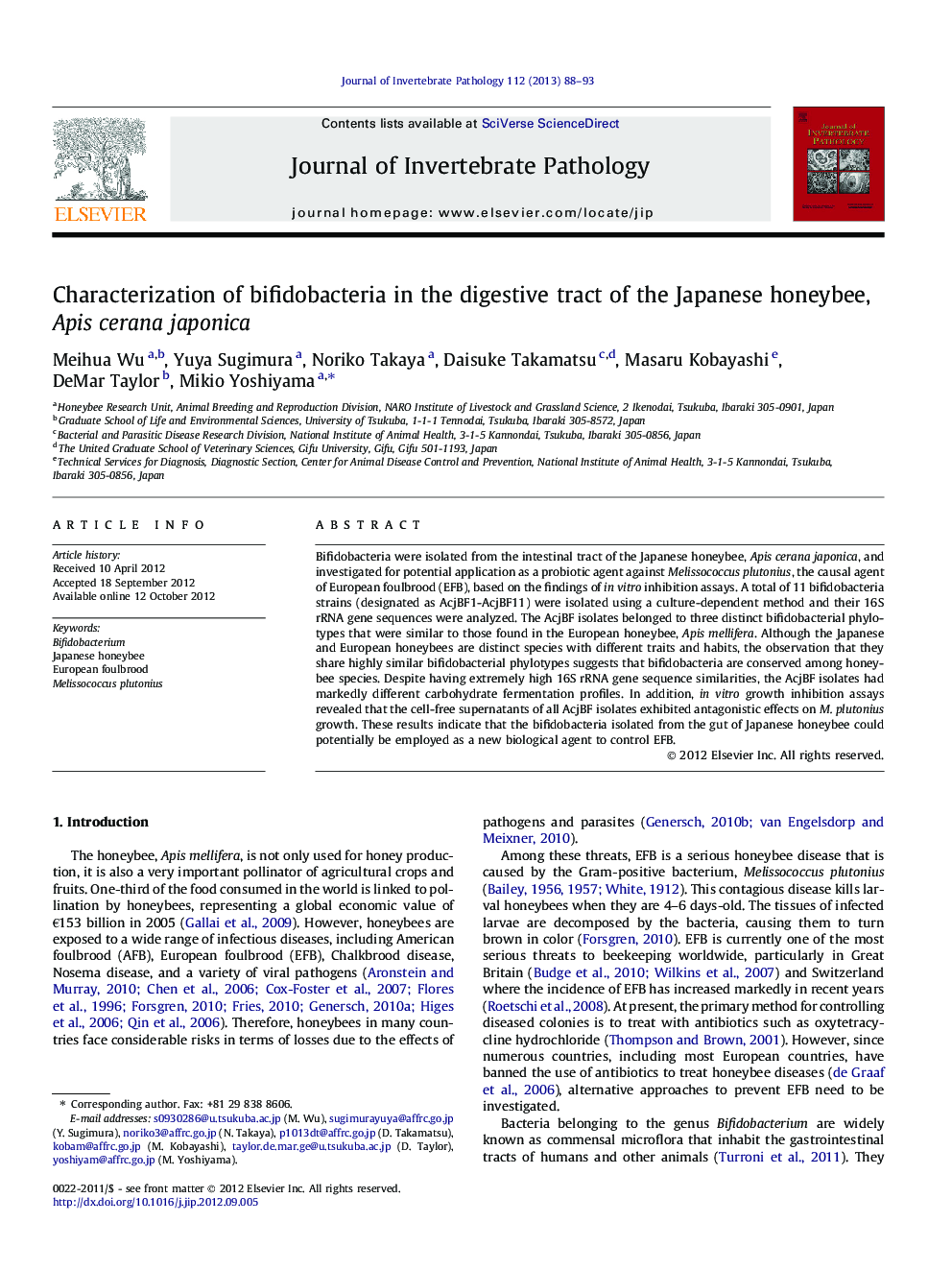| Article ID | Journal | Published Year | Pages | File Type |
|---|---|---|---|---|
| 6389710 | Journal of Invertebrate Pathology | 2013 | 6 Pages |
Bifidobacteria were isolated from the intestinal tract of the Japanese honeybee, Apis cerana japonica, and investigated for potential application as a probiotic agent against Melissococcus plutonius, the causal agent of European foulbrood (EFB), based on the findings of in vitro inhibition assays. A total of 11 bifidobacteria strains (designated as AcjBF1-AcjBF11) were isolated using a culture-dependent method and their 16S rRNA gene sequences were analyzed. The AcjBF isolates belonged to three distinct bifidobacterial phylotypes that were similar to those found in the European honeybee, Apis mellifera. Although the Japanese and European honeybees are distinct species with different traits and habits, the observation that they share highly similar bifidobacterial phylotypes suggests that bifidobacteria are conserved among honeybee species. Despite having extremely high 16S rRNA gene sequence similarities, the AcjBF isolates had markedly different carbohydrate fermentation profiles. In addition, in vitro growth inhibition assays revealed that the cell-free supernatants of all AcjBF isolates exhibited antagonistic effects on M. plutonius growth. These results indicate that the bifidobacteria isolated from the gut of Japanese honeybee could potentially be employed as a new biological agent to control EFB.
Graphical abstractDownload full-size imageHighlights⺠Bifidobacteria were isolated from the intestinal tract of the Japanese honeybee. ⺠These bifidobacterial phylotypes were similar to those found in the European honeybee. ⺠These bifidobacteria exhibited antagonistic effects on M. plutonius growth by in vitro assays. ⺠These bifidobacteria could potentially be employed as a new biological agent in apiculture.
